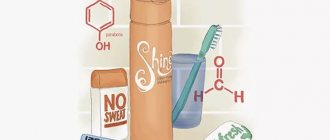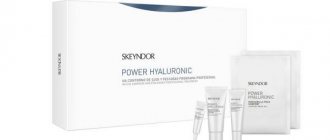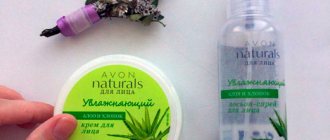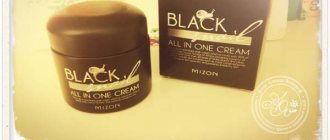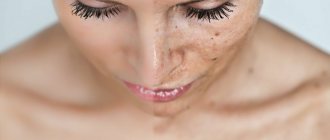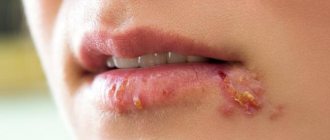beauty
31 August 2020, 19:17
- Main action of AHA
- Why is citric acid added to cosmetics?
- The effect of citric acid on the skin
Almost no cosmetic product is complete without fruit acids - malic, lactic, tartaric, citric. They work simultaneously on the surface of the epidermis and in the cells, and have powerful exfoliating, whitening, rejuvenating, and antibacterial properties. What effect does citric acid have, why is it added to cosmetics?
Main action of AHA
Usually, creams, peels, and serums contain not one, but several varieties of fruit acids (AHA). They enhance each other’s effectiveness, allowing the product to work in several directions: gentle exfoliation, cleansing pores, combating age-related changes, lightening age spots.
As a rule, cosmetics with AHAs are used for evening care, as they increase the skin's sensitivity to sunlight
If such products are used in day care, then sunscreen should be applied to the face.
Citric acid is a type of fruit acid
Where do you get d limonene?
The question of where to get a lemon-scented concentrate can be solved in two ways - synthetic and natural. Both options are used in industry. If you want to extract limonene at home, you can simply process citrus fruits. For example, lemon pulp will contain about 90% d limonene. By the way, citrus juice is very good for health. It is worth considering that by drinking freshly squeezed juice without pulp, you are losing a lot.
The concentrate you are interested in is available for purchase. Of course, if you wonder where to find it. If you are not attracted by the prospect of looking for points of sale in the city, enter a query online. The iHerb online store offers d limonene at a price of 400 rubles for 60 capsules.
D-limonene is an excellent antioxidant that can inhibit the development of “wrong” cells in your body, support weakened immunity and support liver health. This supplement should be taken one capsule with food two to three times daily.
Why is citric acid added to cosmetics?
Citric acid is present in many cosmetic products, and this ingredient is not always listed in the composition. It refers to a type of fruit acid that is obtained from various citrus fruits. Citric acid is often used not for facial care, but as a pH regulator . This component, obtained from citrus fruits, makes the product more acidic (this is especially necessary for toners and cleansers), and is also added to the composition as a natural preservative.
In this case, this ingredient, according to cosmetics labeling rules, is not always indicated on the label. For these purposes, it is added to shampoos, hair conditioners, facial tonics, cleansing gels, creams, and soaps.
Another property of this component is foaming , due to which foams and shampoos foam well. It is also added to hair dyes: it makes the pigment more saturated. Of course, Citric acid is also included in skin care.
Citric acid is often added to the composition as an acidity regulator.
Limonene
The concentration of limonene in cosmetics does not exceed 0.01%, so it is mentioned one of the last in the list of ingredients.
Limonene saturates cosmetics, household chemicals and even medicines with lemon aroma 52073
Properties of limonene used in cosmetics:
Aromatic . Limonene imparts a fresh, light citrus or pine scent to cosmetics and hygiene products.
Solvent . Limonene is an excellent fat dissolver, and therefore is used in the production of cosmetics as a harmless alternative to alcohols.
Disinfectant. Limonene effectively fights fungal and bacterial microorganisms, mold, mites, helping to cleanse the skin and protect cosmetics from spoilage.
Limonene is an effective repellent because it not only repels, but also kills many insects, which is why it is included in ointments and sprays that protect against insect bites.
It is recommended to store cosmetics containing limonene in a cool, dry place.
What cosmetics contain limonene?
- Face and body creams
- Lotions
- Tonics
- Tanning products
- Shampoos, conditioners
- Decorative cosmetics
- Shaving products
- Soap, bubble bath, shower gel
- Decorative cosmetics
- Lipsticks, lip balms
The use of cosmetics with limonene is undesirable:
- for hypersensitive skin
- with a tendency to allergies, especially to citrus and pine components
What is Limonene found in cosmetics?
Limonene is a substance related to terpene hydrocarbons. It was first isolated from the essential oil of orange peels back in the mid-19th century. At first, scientists believed that limonene had many different isomer variants, since this fragrant element was found in the essential oils of bergamot, cumin, lemon, mint, parsley, fennel, pine and many other plants, and even gave these variants different names. But then they came to the conclusion that there are only two varieties of limonene - one is found in citrus oils and smells of lemon freshness, and the other, which has the smell of pine needles, is extracted from turpentine and pine oils (by the way, the term “terpenes” comes from the Latin expression Oleum Terebinthinae, meaning "turpentine").
Limonene is a popular aromatic fragrance for cosmetics, perfumes, hygiene and detergents, and medicines. Despite its flavor variations, limonene is usually referred to as the isomer that smells like lemon.
Due to its degreasing properties, limonene is indispensable in nail polish removers and for removing grease from the skin of the hands. Taking into account modern trends in environmental friendliness, it is becoming very popular to use home care products that leave a fresh, natural citrus scent. And limonene also helps with this, especially since its aroma can create a good mood.
Where do you get limonene for cosmetics?
Limonene can be obtained naturally and synthetically. Since citrus essential oils can contain up to 90% limonene, it can be extracted using centrifugation and fractional steam distillation. However, on an industrial scale, limonene is most often obtained synthetically from geraniol by chemically acting on its hydrocarbon chain.
The result is a viscous, transparent, colorless liquid with a strong lemon odor, which is completely insoluble in water, but easily contacts ethanol.
Limonene raises concerns about allergenicity and carcinogenicity. However, studies have shown that limonene is no more likely to cause allergies than other flavorings, including natural citrus flavors.
As for carcinogenicity, according to the International Agency for Research on Cancer, limonene is classified as a substance from the stable safety zone and is not classified as a carcinogen. Moreover, research is underway on the positive effects of limonene on the body in certain types of tumors.
The effect of citric acid on the skin
The peculiarity of Citric acid is that, due to the large size of its molecules, it works on the surface of the epidermis, having a powerful antibacterial and whitening effect . That is why it is rarely used as the main component: in high concentrations it will irritate the epidermis.
Its main effect is exfoliation of keratinized cells of the epidermis , and therefore most often it can be found in products intended for exfoliation: peelings, rolls, gommages, tonics, washing gels for problematic and oily skin.
Citric acid exfoliates dead cells of the epidermis, evens out the relief, makes pores less noticeable, smoothes scars and marks left after acne.
In professional cosmetology in clinics, the component is used in higher concentrations than in home products to combat serious defects (for example, scars, scars, hyperpigmentation). The substance also works as an antioxidant that fights signs of aging, but this is not its main property.
Citric acid has a strong whitening and exfoliating effect
Basically, cosmetics with this component are intended for oily and problem skin . Like any other fruit acid, it should not be applied daily. If your skin is sensitive, the product may cause irritation.
It is important to understand that Citric acid is not a powdered substance that is used for culinary purposes or for descaling equipment. And this is not pure lemon juice. Neither the first nor the second should categorically be used in care: applying them to the face can cause dryness, irritation, peeling and even burns. Citric acid is a component used in cosmetology. It can only be applied in the form of professional creams, tonics, peelings, serums, and gels for facial cleansing.
More lemons for all skin types!
Save from creativemarket.comCopyright Question1K+Laura SamelsDo you hydrate
Lemons contain perhaps the highest concentration of vitamin C of all fruits. But in addition to it, the fruits also contain vitamins A and B, as well as fruit acids. Lemon juice has the most effective effect against various types of bacteria. Due to its powerful antiseptic properties, lemon is very popular in cosmetics for the care of problem skin.
Lemon is also an excellent remedy for dull skin. Fruit acids are the gentlest type of skin exfoliant and also the least traumatic. Therefore, products with lemon extract help remove the thin top layer of the epidermis, which is already full of dead particles, and release a bright, fresh complexion. This fruit also helps in the fight against age spots. The main thing, of course, is not to overdo it.
Surprisingly, lemon is also a good helper in anti-aging products due to its ability to make tissues more elastic. Most often, anti-aging creams for the neck and décolleté area contain lemon extract: they help keep this delicate and delicate area in good shape and eliminate age pigment.
Lemon in cosmetics
Zdorovie-vashe.info You can find a lot of citrus fruits on store shelves, but special attention should be paid to lemon. This extremely healthy citrus fruit rightfully takes first place. A unique feature of lemon will be not only the sourness of its taste, but also a huge range of minerals and vitamins required by the human body. Almost everyone knows about vitamin C, which is so abundant in lemon. In addition, it is endowed with tonic and antioxidant properties. The benefits of lemon for human health are enormous and the beneficial substances contained in this citrus fruit have a good effect on human health and appearance. Let's talk a little lower in the article about how to use lemon in cosmetics!
The effect of lemon on a person’s appearance:
- Lemon helps deal with acne. To fight acne, you need to use a product that has antimicrobial and antibacterial properties. Our overseas fruit called lemon has precisely these properties. It should be noted that lemon in this case will act as a natural remedy. Rubbing the affected skin with a piece of lemon just a few times a day can cope with this problem. Here is another recipe: if you add a small amount of honey to half a lemon and apply this remedy to the area of the face where there are acne, then over time they will completely disappear. Don't forget to wash it off after 10 minutes with cool water. Thus, acne may go away within a few weeks.
- Lemon gets rid of blemishes on the face. With the beginning of spring and the activity of the sun, age spots sometimes appear on the face. It is difficult to cope with such a serious problem, but lemon comes to the rescue. Since it contains citric acid, it can quickly and efficiently deal with emerging age spots and lighten the skin color. To do this, you need to lubricate the skin on your face with fresh lemon juice and after a while you will notice that the skin color has evened out and now you are not ashamed to show yourself in public. However, if there are ulcers on your face, you should refuse this procedure, because citric acid will corrode them.
- Lemon whitens teeth. Lemon helps perfectly in whitening teeth, without being inferior to other effective remedies, for example, banana. To perform the whitening procedure, you need to prepare a product containing 10 drops of lemon juice and 1 tsp. table sea salt. All ingredients are mixed. Take the resulting paste with your finger and rub it on your teeth. You should hold the product on your teeth for 1 minute, and after that, rinse your mouth and carry out the procedure of brushing your teeth with regular toothpaste.
- Lemon gets rid of oily skin. If a person has such an unpleasant problem as increased sebum secretion, then there is a strong desire to get rid of it as quickly as possible. And it's not that difficult to do. Sprinkle lemon juice on a cotton cloth and wipe your face before going to bed. After such procedures, a person will notice a significant change, since the skin on the face will no longer be so shiny and oily.
- Lemon strengthens hair. Girls often pay attention to the condition of their hair. To keep them looking beautiful and healthy, they are willing to spend a lot of money. However, do not forget about a fairly effective and natural remedy that is just at hand. For example, you can add a few tablespoons of lemon juice to your hair conditioner. The resulting product should be applied to the hair and allowed to absorb for an hour. After this, you should wash your hair with regular shampoo. If you use this product at least once a week, you will see that your hair will become stronger, silkier and softer. Which will undoubtedly please any female representative.
- Lemon strengthens nails. Sometimes a person has problems with their nails. Healthy, shiny and strong nails suddenly began to break and peel easily. Solving this problem is quite easy. All you need is a couple of lemons. Mix olive oil and lemon juice in equal parts. Rub the resulting product onto your nails and leave for 1 hour. By performing a similar procedure every day, after just a couple of weeks, it will be noticeable that yellowed and rather fragile nails have become stronger and their natural color is gradually returning to the nail plates.
So, it is obvious that the power of natural products can help a person maintain his beauty and health. Using lemon for beauty brings benefits. It is important to know how to properly use certain products to benefit your health.
Did you like the article? Share with your friends by clicking on the button on your blog or social network...
PS If you have proven folk recipes for treatment or you know any treatment methods and want to share interesting and useful information on the topic of health or a healthy lifestyle with others, then see the section “About the site and authors.” Thanks in advance.
Site administration
Interesting materials:
- Effective ways to get rid of acne
- Folk remedies for treating aloe
- Cleansing the body at home
- Strawberry face mask
